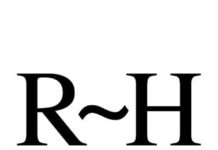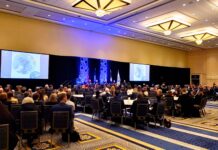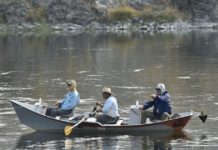(PRESS RELEASE/WDFW)
The Washington Department of Fish and Wildlife (WDFW) office in Colville gets a lot of questions from the public, and one heard recently is: What is lake rehabilitation and which lakes in the Colville area will be treated by WDFW this fall?
Lake “rehabilitation” is the removal of nuisance fish species via application of rotenone. WDW employs rehabilitation, on an as-needed basis for a select group of lakes in eastern Washington, most of which are trout-only waters.
Rotenone is a naturally occurring substance found in the roots of some members of the legume, or bean, family of plants. It is highly toxic to fish and other gill-breathing animals, but much less so to mammals, birds, reptiles, and adult amphibians. The concentrations used to remove fish are very low and pose virtually no risk to humans. Rotenone is also usually undetectable in treated lakes within about six weeks. Lakes undergoing rehabilitation are generally treated in the fall and re-stocked with trout the following spring.
This fall, WDFW will rehabilitate two local lakes to restore trout fisheries. McDowell Lake, a fly-fishing only lake located on the Little Pend Oreille Wildlife Refuge, will be treated to remove Pumpkinseed Sunfish and Tench. Hatch Lake, a winter-season trout lake located just east of Colville, will be treated to remove illegally introduced Yellow Perch. These species compete with and prey on trout fry so are incompatible with fisheries management goals in these trout-only waters. Removal of these species will facilitate increased trout survival and growth in the two lakes. Both lakes will be re-stocked with fish next spring and should provide great fisheries for many years to come.
If you have a question for the Washington Department of Fish and Wildlife, send it to publicaffairs@dfw.wa.gov or call 509-563-5495. One question a week will be answered.
Credit: Source link































